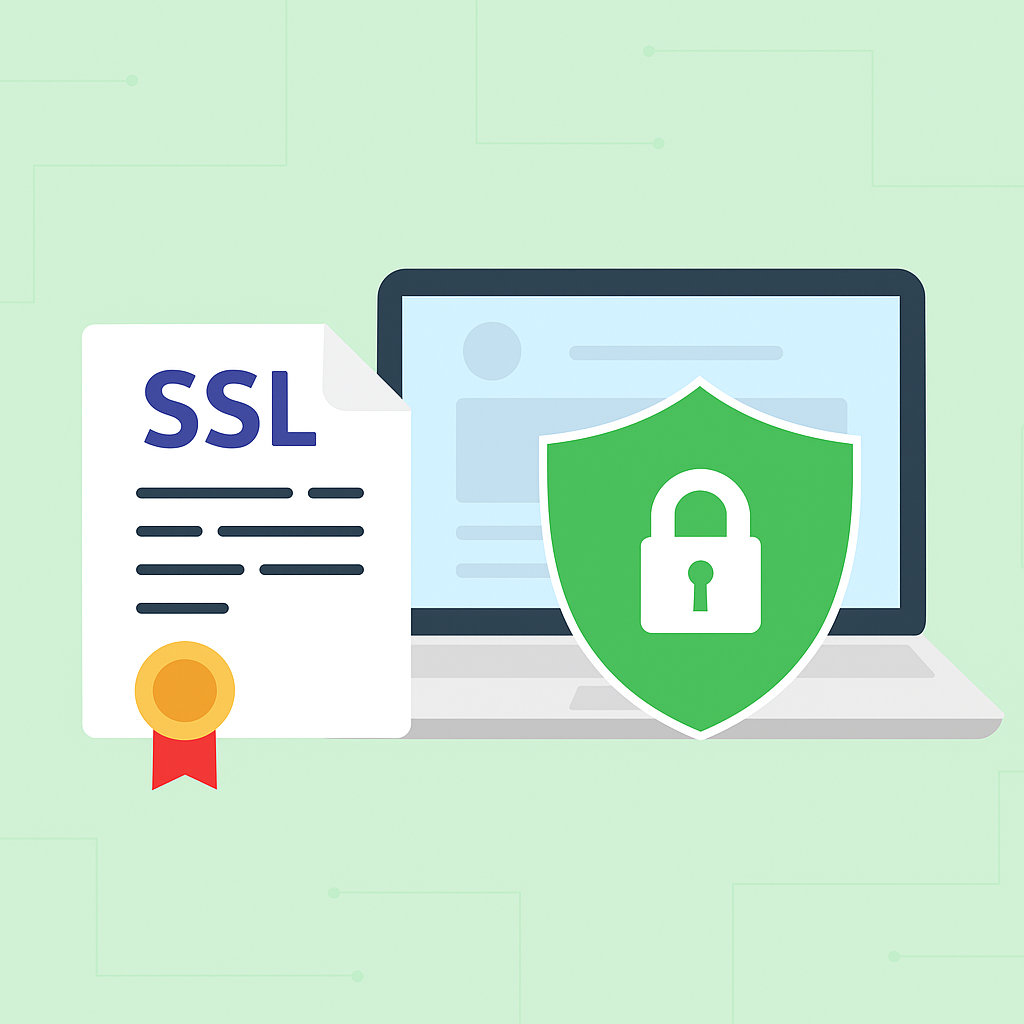
13
SSL Certificates: What They Are & Why They Matter
Learn what SSL certificates are, how to check them, and why they are crucial for website security, trust, and SEO rankings.
SSL Certificates: What They Are, How to Check and Why They’re Crucial for SEO
Introduction: The Lock Icon That Builds Trust
Ever noticed the little padlock in your browser’s address bar? That’s not just a design detail—it’s a sign that the website uses an SSL certificate. In today’s digital world, where cyber threats are increasing daily, SSL isn’t optional. It’s essential.
For users, SSL provides trust and security. For businesses, it protects sensitive information and boosts credibility. And for marketers? SSL is now a confirmed Google ranking factor.
In this guide, we’ll explain what SSL certificates are, how they work, how to check if a website has one, and why they are vital for both security and SEO success.
What Is an SSL Certificate?
Definition
An SSL certificate (Secure Sockets Layer) is a digital certificate that encrypts the data transferred between a user’s browser and a website’s server. It ensures sensitive information—like login details, payment data, and personal information—stays private.
How It Works
- A user visits an HTTPS website.
- The SSL certificate establishes an encrypted connection.
- Data is transmitted securely between the browser and server.
Example
- Without SSL (HTTP): http://example.com – vulnerable to attacks.
- With SSL (HTTPS): https://example.com – encrypted and secure.
Types of SSL Certificates
1. Domain Validated (DV)
- Quick and inexpensive.
- Only verifies domain ownership.
- Best for blogs or small sites.
2. Organization Validated (OV)
- Verifies business details.
- Displays organization name in the certificate.
- Suitable for company websites.
3. Extended Validation (EV)
- Most secure.
- Requires strict validation.
- Displays business name in the browser address bar.
- Best for eCommerce, banks, and enterprises.
Why SSL Certificates Matter
1. Security & Data Protection
SSL encrypts data, preventing hackers from intercepting sensitive information like passwords or credit card numbers.
2. Building User Trust
Visitors are more likely to trust websites with the padlock icon. In contrast, browsers now display warnings like “Not Secure” on HTTP sites.
3. SEO & Google Rankings
Google confirmed that HTTPS is a ranking signal. Sites with SSL certificates often outperform non-secure competitors.
4. Better Conversion Rates
Studies show users are more willing to complete purchases on secure websites.
How to Check if a Website Has an SSL Certificate
Method 1: Look for HTTPS in the URL
- https:// = Secure
- http:// = Not Secure
Method 2: Check the Padlock Icon
Click the padlock in the browser bar for certificate details.
Method 3: Use Online SSL Checkers
- SSL Labs – Detailed SSL test.
- Why No Padlock? – Finds SSL issues.
- SSL Shopper – Quick validation check.
Method 4: Inspect Certificate Expiration
SSL certificates expire and must be renewed. An expired certificate triggers browser warnings.
How to Install an SSL Certificate
Step 1: Purchase or Get a Free SSL
- Paid providers: DigiCert, Sectigo, GlobalSign.
- Free providers: Let’s Encrypt, Cloudflare SSL.
Step 2: Install SSL on Your Server
Most hosting providers offer one-click SSL installation.
Step 3: Update Your Website URLs
Switch from http:// to https:// in all internal links.
Step 4: Set Up 301 Redirects
Redirect old HTTP URLs to new HTTPS ones to avoid broken links.
Step 5: Update Google Search Console & Analytics
Ensure Google indexes your secure HTTPS pages correctly.
SSL Certificates & SEO: Why They’re Crucial
Google’s Stand on HTTPS
In 2014, Google announced HTTPS as a ranking signal. Today, Chrome even warns users when they visit non-HTTPS websites.
Impact on Core Web Vitals
SSL improves overall user experience, aligning with Google’s Core Web Vitals initiative.
Backlink Building
Webmasters are less likely to link to insecure websites. SSL can indirectly help build authority.
Higher Click-Through Rates
A secure padlock icon in search results can increase user trust and clicks.
Common SSL Mistakes to Avoid
- Not Renewing SSL Certificates – Leads to browser security warnings.
- Mixing HTTP & HTTPS (Mixed Content) – Causes partial encryption errors.
- Improper Redirects – Not setting up 301 redirects can hurt SEO.
- Relying on Self-Signed Certificates – Browsers flag them as unsafe.
Real-World Example: SSL Boosting SEO
An online retailer migrated from HTTP to HTTPS using an EV SSL certificate. Results after 3 months:
- 25% increase in organic traffic.
- 15% higher conversion rate.
- Fewer cart abandonments due to increased trust.
Future of SSL Certificates
The web is moving toward a fully encrypted ecosystem. With the rise of Let’s Encrypt and automatic certificate renewal, SSL adoption is becoming easier and more widespread.
Expect stricter browser rules and penalties for non-HTTPS sites in the coming years.
Conclusion: Secure Your Site and Rank Higher
SSL certificates are no longer optional—they’re essential for:
- Protecting user data.
- Building trust and credibility.
- Improving SEO rankings.
- Increasing conversions.
Call to Action: If your site still runs on HTTP, it’s time to act. Get an SSL certificate today—whether free or premium—and secure your place in both Google’s rankings and your customers’ trust.
Contact
Missing something?
Feel free to request missing tools or give some feedback using our contact form.
Contact Us